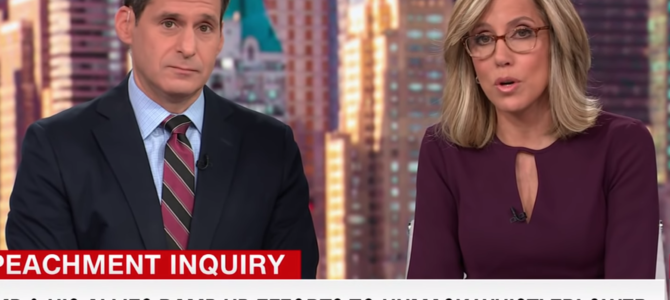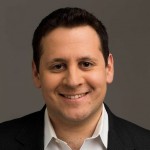
Does the public have a right to know the name of the man who commenced the current effort to impeach the president of the United States? The Trump-hating media, following the lead of Trump-hating House Democrats, seems to think not. It seems they believe he should be held to a different standard than other whistleblowers.
Indeed, many legacy media refuse to run the presumed name of the so-called Ukraine whistleblower in spite of ample evidence as to his identity. Likewise, Twitter is trying to deter users from divulging his name by punishing select accounts that have done so. YouTube has similarly banned mentions of his name across their entire site.
Such entities appear to have fallen in line with Rep. Adam Schiff, leader of the illegitimate impeachment inquiry. Schiff was prepared to give the complainant a public hearing before doing an abrupt about-face after it was revealed the congressman and his staff had coordinated with the whistleblower prior to the complaint being filed, and then lied about it.
Revelations about the ties of both the presumed whistleblower, as well as one of his lawyers, to Russiagate and the broader apparent rolling coup against the president only further undermine the credibility of the impeachment process and its underlying substance. Consequently, it is unclear whether the whistleblower will even respond to written questions from House members.
Dems Have No Good Reason to Hide the Whistleblower
Before addressing the media’s newfound fidelity to protecting whistleblowers and other newsworthy subjects, it is critical to note it is not Republicans but Democrats who brought this complainant into the political realm and therefore made his identity germane. They did so by dint of making the whistleblower’s complaint the basis of their impeachment “inquiry.”
Impeachment, of course, is a political remedy. (The intelligence community inspector general, or ICIG, is also culpable to the extent that he modified whistleblower forms and policies seemingly specifically to make the complaint in question admissible.) Democrats cannot credibly argue they have a legal, let alone political, duty to keep the whistleblower anonymous in an impeachment context. On the contrary, given the gravity of the political matter, they have a duty to be fully transparent about every aspect of their so-called inquiry.
As for the media, can we attribute its devotion to respecting the privacy of parties involved in sensitive matters to anything other than politics? The evidence suggests not.
The Media Has a Double Standard for Whistleblowers
First, contrary to the claims of some talking heads, there is nothing illegal about the media running this person’s name. It is only the ICIG who is barred from outing the whistleblower, pursuant to U.S.C. § 3033(g)(3)(A). Even the whistleblower’s lawyers acknowledge this by omission in a statement on protecting his identity.
Second, consider the contrast in media treatment of purported whistleblower Eric Ciaramella and that of Adam Lovinger, in context of the supposed desire to protect whistleblowers from reprisal, governmental or otherwise.
Based on the RealClearInvestigations report on Ciaramella, given his laundry list of anti-Trump bona fides and apparent connections to leaders in the national security and foreign policy apparatus, he would appear to be a proverbial “made man” of the deep state. It is hard to fathom at this point any circumstance in which he could be the subject of reprisal, which should allay any media fears.
Meanwhile, should he leave public office, he will resign as a Resistance hero. You will probably find him on CNN. And if his security were of primary concern, then Schiff would have never originally been so gung-ho about having the whistleblower appear publicly in the first place. It strains credulity to believe a member of the CIA who had colluded with Schiff would not know the stakes of the game he entered.
Conversely, Lovinger, a man with impeccable credentials as a longtime member of the national security apparatus and supporter of the Trump administration’s agenda, saw his career destroyed after whistleblowing on activity he saw as fraudulent. Lovinger called into question the legitimacy of lucrative but possibly sham contracts doled out by the Pentagon’s Office of Net Assessment to, among others, Stefan Halper, the confidential informant who spied on the Trump campaign, as well as a close confidante of Chelsea Clinton on whose behalf Hillary Clinton had lobbied.
In what appears to be an egregious example of administrative state tyranny, Lovinger was pushed out of his new position in the Trump National Security Council (NSC), stripped of his security clearance, and finally suspended without pay while trying to litigate four apparently meritless cases against officials he alleges targeted him for his whistleblowing.
His lawyer’s account of the apparent farce of a process, in violation of due process rights, in which the agency that targeted him played judge, jury, and executioner, must be read in full to be believed. To give just one example of the war waged against Lovinger, in August 2019 it was revealed the government had completed a secret and ultimately exculpatory investigation into one of the charges against him, without ever notifying his defense team of the exoneration in advance of his administrative trial. The apparent persecution of Lovinger was so egregious that back in October 2018, Rep. Louie Gohmert, R-Texas, introduced the Adam S. Lovinger Whistleblower Reprisal Act.
The Media Is Playing Political Games
As for the media’s role, according to Lovinger’s counsel, government officials leaked false and defamatory information that the media dutifully printed, apparently not believing Lovinger deserved whistleblower protection like Ciaramella.
The media went still further. Rather than highlight Lovinger’s case as an example of the abuse to which genuine government whistleblowers are often subjected, it sought to mock the alleged victim and undermine his defense by casting it as politicized. In a December 2018 article titled “Blaming the Deep State: Officials Accused of Wrongdoing Adopt Trump’s Response” — back in the days when The New York Times was still rolling its eyes at the notion of a deep state, rather than wholeheartedly embracing it — the Times portrayed Lovinger as pioneering “the deep state defense,” “fashion[ing] himself a victim of Democratic-supporting national security officials.” It sought to sully his claims of whistleblower reprisal as based on an illegitimate conspiracy theory argument.
Lastly, consider not only the media’s apparent double standard in treatment of whistleblowers, but its hypocrisy on the matter. This was brought into stark relief when on ABC’s “The View,” Donald Trump Jr. noted that while ABC was doggedly defending the Ukraine whistleblower’s identity, it was pursuing a whistleblower concerning its efforts to kill reporting on Jeffrey Epstein’s criminal conduct. That whistleblower was identified as a staffer at competitor CBS, which promptly fired her.
https://twitter.com/seanmdav/status/1192479939767001088
The media has had no qualms about chasing stories targeting government officials (who would have otherwise remained nameless and faceless) pursuing sensitive matters. In recent weeks, for example, a series of pieces have dragged staffers such as Derek Harvey and Kash Patel through the mud, people who served both in the Trump administration and under Rep. Devin Nunes, R-Calif., on the House Permanent Select Committee on Intelligence. Why no concern for their safety?
Nor has the media ever apologized for the deluge of leaks — many of which have proved false and seemed aimed at drowning the Trump administration — that have harmed countless other people swept up in the reporting through no fault of their own. For that matter, why has the media never apologized for outing a minor who was the subject of a massive social media mob, Covington Catholic High School’s Nicholas Sandmann?
The answer, it appears, is politics.
Ukrainegate Is a Russiagate Repeat
As with Schiff’s entire impeachment process, by refusing to admit the name of the whistleblower, the media seems to want to be able to control the narrative rather than subject him to the scrutiny that, based on current knowledge of his background, is more than deserved.
That is, they wish to control a narrative that suggests President Trump sought to engage in untoward behavior with Ukraine that potential 2020 opponent Joe Biden actually engaged in – just as Trump was accused of colluding with Russians while 2016 opponent Hillary Clinton actually did so.
With Russiagate, they claim Trump desired to commit a crime, which they cannot cite, by conducting foreign policy as he saw fit, just as they claimed he desired to obstruct justice, without an underlying crime, by making personnel decisions as he saw fit. What we are witnessing in the attempt to hide the whistleblower is just the Ukrainegate version of the deep state’s game-playing with redactions, undertaken by its media colluders.
One must ask: If the media admitted to being the Democratic Party’s communications arm, would it act any differently? Again, the whistleblower’s name became relevant when this became a political rather than a legal process.
The American people deserve to know the truth, the whole truth, and nothing but the truth about the motives of every person involved in this impeachment process — particularly when it stems from someone’s opinion of what Trump believed in his own mind, reflected in a complaint based on hearsay, from a Biden-tied Russiagate player who was reportedly thrown out of the Trump NSC for suspected leaking, regarding a single phone call alleging a quid pro quo that never materialized and that would have never qualified as a high crime and misdemeanor had it ever been executed.









